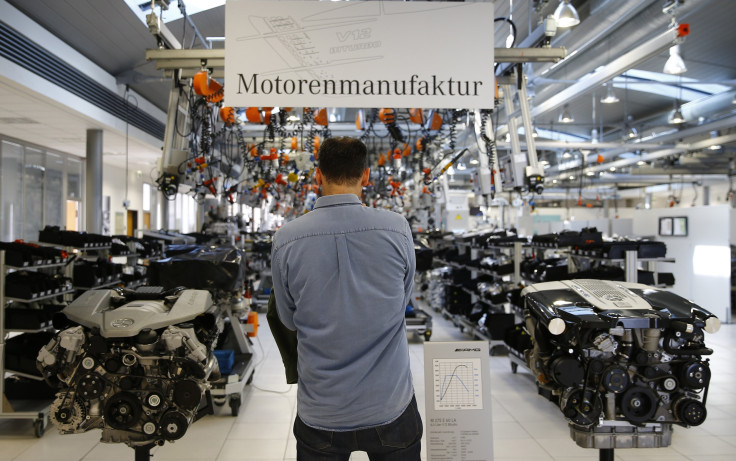German Factory Orders Plunged In August, Stoking Fears Of European Economic Slowdown

German factory orders had their sharpest drop since 2009, Berlin’s Economy Ministry said Monday, erasing recent gains and adding to fears of a slowdown in Europe’s largest economy.
A big drop in international demand caused factory orders to fall by 5.7 percent in August from July and 1.3 percent from a year ago, Berlin said. Economists had expected a 2.5 percent monthly decrease, according to a Bloomberg survey. By contrast, orders from abroad drove a 4.6 percent increase in factory orders in July, the most in more than a year.
Orders from outside the euro zone fell 9.9 percent in August from July, orders from other countries in the euro zone fell by 5.7 percent, and domestic orders fell by 2 percent.
The “hesitant economic development” of the 18-nation euro zone and uncertainty introduced by “geopolitical events” weakened demand, the ministry said. The bloc of European countries is struggling to maintain economic momentum in a recovery while political tensions with Russia continue to escalate. International sanctions against Russia and a faltering Chinese economy have deteriorated business and investor sentiment in the euro area. Inflation in the region is at a five-year low, at 0.3 percent last month compared with the European Central Bank’s 2 percent target for price stability.
The European Union and the U.S. have imposed several economic sanctions against Russia over its involvement in the Ukraine crisis, and Moscow has retaliated by banning most food imports from the Western trade partners. Moscow is reportedly considering a ban on car imports and clothes from the West, which would hurt Germany’s Volkswagen and Mercedes-Benz manufacturers among others leading the country's industrial output. If the dispute with Russia over the Ukraine crisis hits Germany’s economy harder in the third quarter than the second, the German economy could fall into recession.
© Copyright IBTimes 2024. All rights reserved.





















